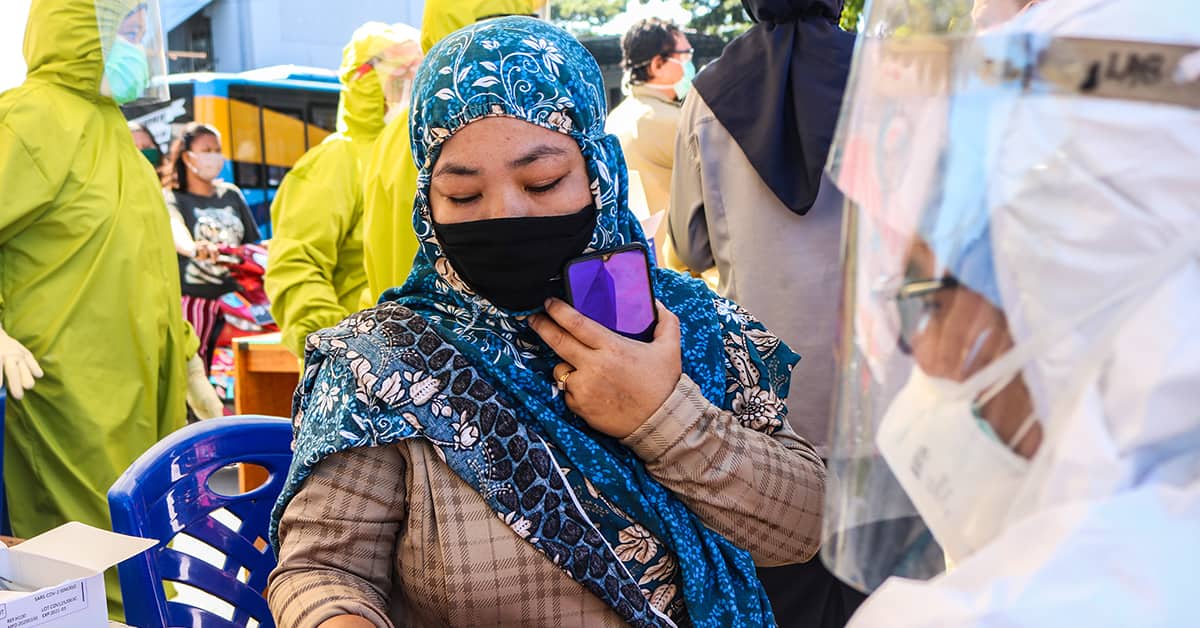Islamic finance took a hit in 2020 but is preparing for the next surge of growth through innovation, standardization, and M&A activity.

The Islamic finance industry slowed down significantly in 2020 after experiencing a very strong 13% growth rate in 2019. Islamic financial institutions spent most of the year coping with the dual shocks of adjusting to the COVID-19 pandemic and historically low oil prices. According to the latest State of Global Islamic Economy report, total Islamic finance assets stood at $2.88 trillion by the end of 2020, matching last year’s figures.
Fortunately there is light at the end of the tunnel. Growth is expected to bounce back and total sharia-compliant assets are predicted to reach $3.69 trillion by 2024 once the global economy
For many industry leaders, this period of stagnation was an opportunity to work on modernising Islamic finance either through the long-awaited standardization of sharia-compliant offerings or by fast-tracking innovation.
More Rapid Islamic Fintech Innovation
According to Pew Research centre, the number of Muslims around the world is growing twice as fast as the rest of the population. By 2060, there could be as many as 3 billion Muslims on Earth—a 70% increase from 2015.
Whether in they live in Asia, Europe, Middle East, or Africa the next generation of Muslims will have at least two things in common: youth and technology.
The future growth of sharia-compliant institutions will therefore greatly depend on their ability to be master technology. Over the last few years, several countries such as Singapore, Bahrain, the United Kingdom and even the United States have come to realise the potential of Islamic fintech and have developed dedicated start-up hubs, venture capital initiatives, regulatory sandboxes and funding programs to develop sharia-compliant fintech innovations.
Islamic fintech start-ups now offer digital mortgage platforms, wealth management mobile applications and sharia-compliant crypto-currency exchanges.
The COVID-19 pandemic accelerated the development of Islamic fintech innovations. With most countries in the world experiencing a lockdown period, banks and financial institutions that still heavily relied on branches to operate were forced to roll out digital tools.
Examples include Pakistan’s mobile wallet Sadapay which received a central bank approval to process payments in over 45 countries, Qatar Islamic Bank starting digital onboarding and new digital-only Islamic banks gearing up to launch in a few months in Kazakhstan and Australia.
Harmonizing Rules and Standards
With the slowdown of global economic activity due to lockdowns, leaders of the Islamic finance industry used this opportunity to make progress on developing uniform standards and regulations.
Since the Islamic finance industry started taking off roughly 30 years ago, regulation (or lack thereof) has been a major problem. The absence of global rules and standards opened the way for each country—and sometimes even individual banks—to decide with its own board of Islamic scholars what practices are acceptable (halal) and forbidden (haram) from a religious point of view.
Although it is still too early to speak about a single rule book, the United Arab Emirates (UAE) is leading the efforts to develop an international regulatory framework governing Islamic finance. Indonesia, Malaysia, Qatar and Kuwait also took significant steps to centralize and simplify their sharia compliance.
Harmonizing standards would be particularly beneficial to the sukuk industry. During the first months of the pandemic, many governments could have turned to sukuk to answer their financing needs but preferred conventional bond markets as it is was quicker and more practical.
“We see an opportunity in the current environment for accelerating and unlocking the long-term potential of the industry,” says S&P in its 2020/2021 Islamic Finance report. “Stakeholders are realizing the importance of standardization as government coffers are depleted and access to sukuk remains more complicated than conventional instruments.”
Islamic M&A as Survival Strategy
Investments in the Islamic economy (including halal food, modest fashion and healthcare) took a big hit in 2020, falling by 13% compared to 2019. For Islamic enterprises, the total amount invested fell by more than 50% this year from $10.7 billion in 2019 to $4.9 billion in 2020. The countries recording the most deals were Indonesia, UAE and Kuwait.
Islamic mergers and acquisitions rose slightly over the same period, with several companies seeking to consolidate their balance sheets. Two landmark deals included Thailand’s Bangkok bank’s $2.16 billion acquisition of an 89% stake in Indonesia’s Bank Permata and Dubai Islamic Bank buying out rival Noor bank to create one of the world’s largest Islamic lender with $75 billion under assets.
Some major deals were postponed to 2021 such as Kuwait Finance House’s $8.8 billion acquisition of Bahrain’s Ahli United Bank and National Commercial Bank’s $15 billion merger with Samba Financial group in Saudi Arabia.
|
Industry |
Target |
Value ($000) |
Acquirer |
| Halal Food | Pinehill Company (British Virgin Islands) | 3,000,000 | Indofood CPB SUKSES MAKMUR TBK, PT (Indonesia) |
| Islamic Finance | PT Bank Permata Tbk (IDX:BNLI) Indonesia | 2,168,850 | Bangkok Bank Public Company Limited (SET:BBL) (Thailand) |
| Islamic Finance | Noor Bank PJSC (UAE) | 893,500 | Dubai Islamic Bank P.J.S.C. (DFM:DIB) (UAE) |
| Islamic Finance | Asuransi Adira Dinamika PT (Indonesia) | 414,000 | Zurich Insurance Group Ltd (Switzerland) |
| Islamic Finance | Alizz Islamic Bank SAOG (Oman) | 178,730 | Oman Arab Bank SAOG (MSM:OAB) (Oman) |
| Islamic Finance | Bahrain Islamic Bank B.S.C. (BAX:BISB) (Bahrain) | 164,390 | National Bank of Bahrain BSC (BAX:NBB) (Bahrain) |
| Islamic Finance | Oman Arab Bank SAOG (MSM: OAB) (Oman) | 119,470 | Arab Bank Group (ASE:ARBK) Jordan |
Source: State of Global Islamic Economy report 2020/2021.



